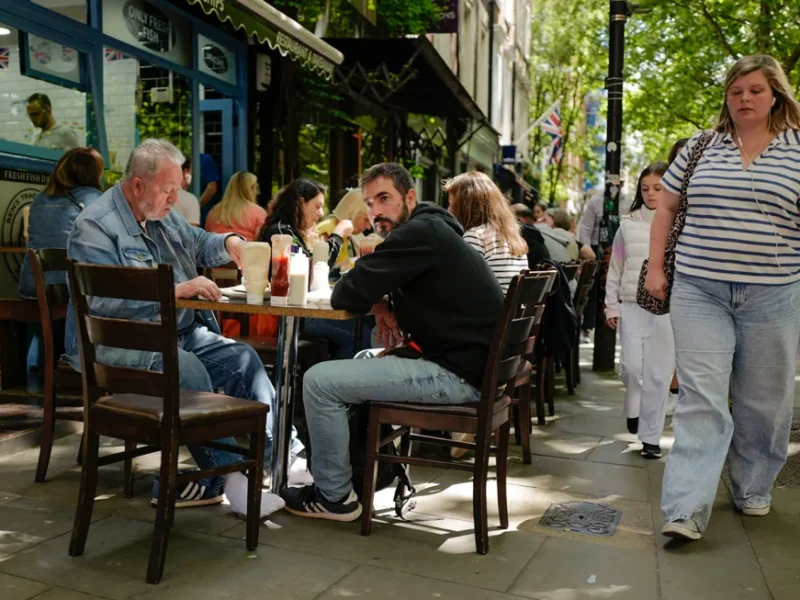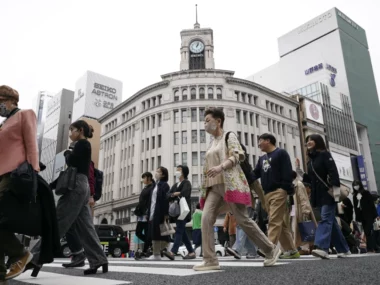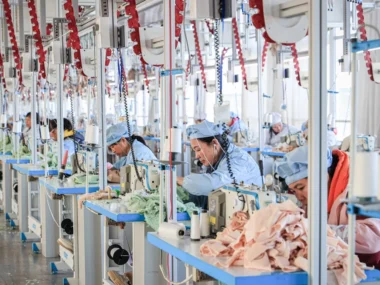In May, UK inflation decreased to 2%, reaching the Bank of England’s target for the first time in nearly three years due to a significant reduction in food price increases.
The consumer price data released on Wednesday indicates that the UK is ahead of most G7 countries in bringing inflation down to the central bank’s target level, which is beneficial for households and businesses.
However, the data also revealed that the prices for services such as haircuts, hotels, and restaurants are still rising too quickly.
This trend suggests that the Bank of England is unlikely to cut interest rates, unlike the European Central Bank, when it meets on Thursday. A rate cut in August, when UK policymakers meet next, also seems less probable.
Services inflation was at 5.7% last month, down from 5.9% in April, but it is “still running too hot,” according to Zara Noakes, a global market analyst at JPMorgan Asset Management.
“Today’s inflation news eliminates any chances of a rate cut from the Bank of England tomorrow… If this persistent pressure on domestic prices continues, along with strong economic activity, an August rate cut could also be unlikely,” she added.
Other economists, including analysts at Nomura, believe an August rate cut is still possible if wage growth and service prices cool further. “For an August rate cut, we need favorable economic news,” the analysts wrote in a note.
Following a prolonged effort to control soaring inflation, the Bank of England raised benchmark borrowing costs to 5.25% last August — their highest level in 16 years, where they have remained. UK inflation peaked at 11.1% in October 2022, driven to a 41-year high by rising food and energy costs. Although inflation has been steadily decreasing and wages have grown faster than prices for almost a year, many Brits still struggle to pay their bills. High living costs are expected to be a significant issue for voters in the upcoming government election on July 4.
“Workers now have more money than they did last year… But most people feel poorer than they did at the last general election nearly five years ago,” said Rebecca Florisson, principal analyst at the Work Foundation at Lancaster University in England.
“For many workers, the cost-of-living crisis is not over yet.”
Jake Finney, an economist at PwC UK, noted that consumer prices have risen by 20% since inflation last met the target in July 2021. He warned that headline inflation could rise above the 2% target as soon as next month if current price trends continue.
“It is not ‘job done’ yet,” he said.
Similar to the UK, inflation has also been stubbornly high in the United States and Europe, causing traders to lower their expectations for interest rate cuts from major central banks.
Although the European Central Bank cut rates earlier this month, it raised its inflation forecast for this year and indicated that consumer prices in the 20 euro-using countries would likely remain above its 2% target well into next year.











